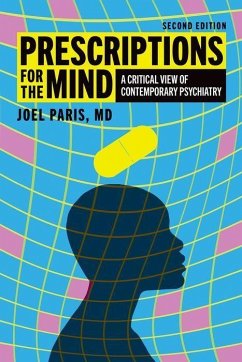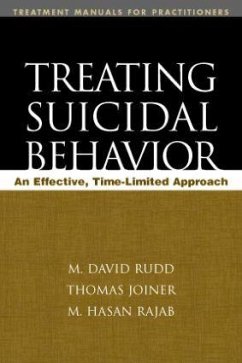
Broschiertes Buch
Psychiatry Reborn: Biopsychosocial Psychiatry in Modern Medicine
Versandkostenfrei!
Versandfertig in über 4 Wochen

PAYBACK Punkte
28 °P sammeln!




With contributions from psychiatry, psychology, neuroscience, and philosophy, this book provides the most comprehensive account to date of the interplay between biological, psychological, and social factors in mental health and their ethical dimensions.
Professor Julian Savulescu has held the Uehiro Chair in Practical Ethics at the University of Oxford since 2002. He has degrees in medicine, neuroscience and bioethics. He directs the Oxford Uehiro Centre for Practical Ethics within the Faculty of Philosophy, and leads a Wellcome Trust Senior Investigator award on Responsibility and Health Care. He directs the Oxford Martin Programme for Collective Responsibility for Infectious Disease at the Oxford Martin School at the University of Oxford. He co-directs the interdisciplinary Wellcome Centre for Ethics and Humanities. He is a leader in medical and practical ethics, with more than 400 publications, an h index of 61 and over 14,315 citations in total. He spent 10 years as Editor of the Journal of Medical Ethics, the highest impact journal in the field, and is founding editor of Journal of Practical Ethics, an open access journal in Practical Ethics. Dr Rebecca Roache was educated at the universities of Leeds and Cambridge, and worked at the University of Oxford before moving to Royal Holloway in 2014. She writes on issues in ethics, language, and psychiatry, and frequently appears in the media. She is currently writing a book on the philosophy of swearing for OUP. Dr Will Davies is a lecturer in Philosophy at the University of Birmingham, specialising in the Philosophy of Psychology and Psychiatry. He completed his BPhil and DPhil at Balliol College, Oxford, where he was a Jowett Senior Scholar, and then held a Junior Research Fellowship at Churchill College, Cambridge before joining the faculty at Birmingham in 2017. Dr Davies has published articles in journals such as Analysis, Philosophical Studies, British Journal for the Philosophy of Science, and Philosophy of Science. He is currently PI of a British Academy/Leverhulme grant on Colour and Form in the Disordered Mind. Professor J. Pierre Loebel was born in Romania, schooled in Palestine and England, studied philosophy and experimental psychology at Oxford University, followed by medical school in South Africa, and psychiatry at The Bethlem Royal and Maudsley Hospitals, London. Influenced by the teaching and training of Alwyn Lishman, Michael Shepherd, and Isaac Marks and influenced by their wide ranging patient formulations, he developed his interest in bio-psychosocially oriented clinical practice. Specializing in geriatric psychiatry and team based care in Long Term Care institutions, he moved after some years into private practice using the full range of bio-psychosocially oriented evaluation and treatment modalities, in tune with the aphorism ascribed to Hippocrates that "It is insufficient to understand the nature of the illness that the patient has, but also necessary to understand the nature of the patient that the illness has."
Produktdetails
- Verlag: Oxford University Press
- Seitenzahl: 432
- Erscheinungstermin: 21. Dezember 2020
- Englisch
- Abmessung: 231mm x 154mm x 21mm
- Gewicht: 716g
- ISBN-13: 9780198789697
- ISBN-10: 0198789696
- Artikelnr.: 59182620
Herstellerkennzeichnung
Libri GmbH
Europaallee 1
36244 Bad Hersfeld
gpsr@libri.de
Für dieses Produkt wurde noch keine Bewertung abgegeben. Wir würden uns sehr freuen, wenn du die erste Bewertung schreibst!
Eine Bewertung schreiben
Eine Bewertung schreiben
Andere Kunden interessierten sich für











